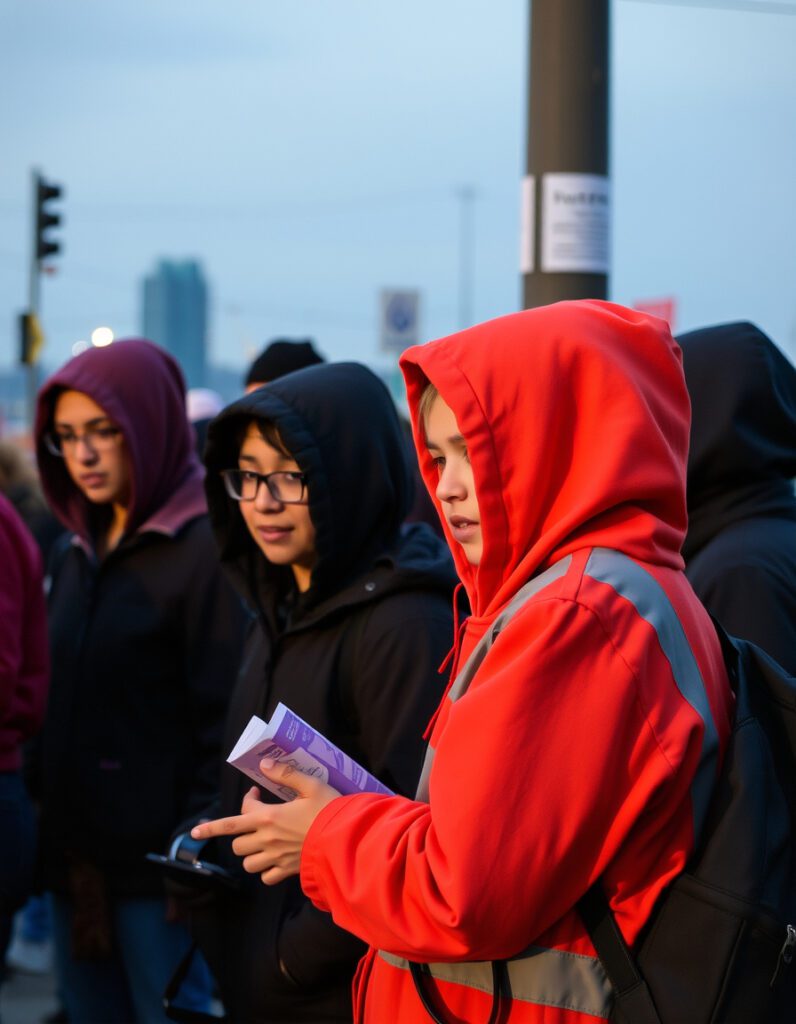The International Labour Organization (ILO) has released a critical report on the global youth employment landscape for 2024, shining a spotlight on what it terms a youth job crisis with high unemployment and inequality. Despite some progress in reducing overall unemployment, the report reveals a grim reality: millions of young people worldwide are still struggling to find stable, meaningful work. This crisis, marked by deep-seated inequalities, underscores the need for urgent, targeted interventions.
The ILO’s findings show that although global youth unemployment has fallen to its lowest level in 15 years—13%—the recovery is uneven and fragile. While high-income countries have made strides, young people in lower-income regions continue to face daunting challenges. The report specifically calls attention to the youth job crisis with high unemployment and inequality in regions like the Arab States, North Africa, and sub-Saharan Africa, where unemployment rates often exceed 30%. Here, economic instability, political unrest, and limited access to quality education and vocational training compound the difficulties young people face in securing jobs.
In addition to regional disparities, the report also highlights the widening gender gap in youth employment. Young women, particularly in lower-income countries, are significantly more likely to be unemployed than their male counterparts. This gender disparity, driven by cultural norms, discrimination in hiring practices, and a lack of support for women balancing work and family responsibilities, is a key factor in the ongoing youth job crisis with high unemployment and inequality. The ILO stresses that to address this issue, there must be focused policies that promote gender equality and provide women with the same opportunities as men.
The situation is further complicated by the high number of young people classified as NEET—Not in Employment, Education, or Training. The report estimates that one in five youths globally falls into this category, representing a significant loss of potential. This issue is particularly pronounced in regions like Southern Europe, Central Asia, and Latin America, where economic stagnation and social inequalities leave many young people without viable paths to employment. The NEET crisis is not just a personal tragedy for those affected; it also contributes to the broader youth job crisis with high unemployment and inequality by perpetuating cycles of poverty and social exclusion.
To address these challenges, the ILO offers several policy recommendations. First, governments must invest in education and vocational training to better equip young people for the modern labor market. This includes promoting STEM education and digital skills, which are increasingly in demand. Second, the ILO suggests supporting youth entrepreneurship by providing access to finance, mentoring, and business development services. This can create new job opportunities and drive economic growth. Third, the report calls for policies that promote gender equality in the workforce, such as paid parental leave, affordable childcare, and anti-discrimination measures. Finally, expanding social protection programs, including unemployment benefits and healthcare, can help reduce the vulnerability of young workers and support those in transition.
In conclusion, the ILO’s 2024 report on youth employment paints a clear picture: the youth job crisis with high unemployment and inequality is a global issue that requires immediate and sustained action. While progress has been made, much more needs to be done to ensure that all young people have access to decent work and the opportunity to fulfill their potential. Governments, employers, and international organizations must work together to address these disparities and create a more inclusive labor market for future generations. For further details, see the International Labour Organization (ILO) 2024 report on youth employment challenges.

- FAQs
- What are the main factors contributing to the youth job crisis with high unemployment and inequality?
The primary factors include economic instability, especially in lower-income regions, limited access to quality education and vocational training, political unrest, and cultural norms that contribute to gender disparities. These factors create an environment where many young people struggle to secure stable and meaningful employment. - How does the gender gap impact youth employment globally?
The gender gap in youth employment is significant, with young women facing higher unemployment rates than men, particularly in lower-income countries. This disparity is driven by cultural norms, discrimination in hiring practices, and a lack of support for women juggling work and family responsibilities, further exacerbating the youth job crisis with high unemployment and inequality. - What is the NEET phenomenon, and why is it concerning?
NEET stands for Not in Employment, Education, or Training. Approximately one in five youths globally falls into this category. The high NEET rate is troubling because it represents a loss of potential and a barrier to economic growth. Young people in this category are at greater risk of social exclusion, poverty, and long-term unemployment. - What policy recommendations does the ILO provide to address the youth job crisis?
The ILO suggests several key policy measures, including investing in education and vocational training, supporting youth entrepreneurship, promoting gender equality in the workforce, and expanding social protection programs like unemployment benefits and healthcare. These measures aim to reduce the youth job crisis with high unemployment and inequality by creating more inclusive and equitable job opportunities.

